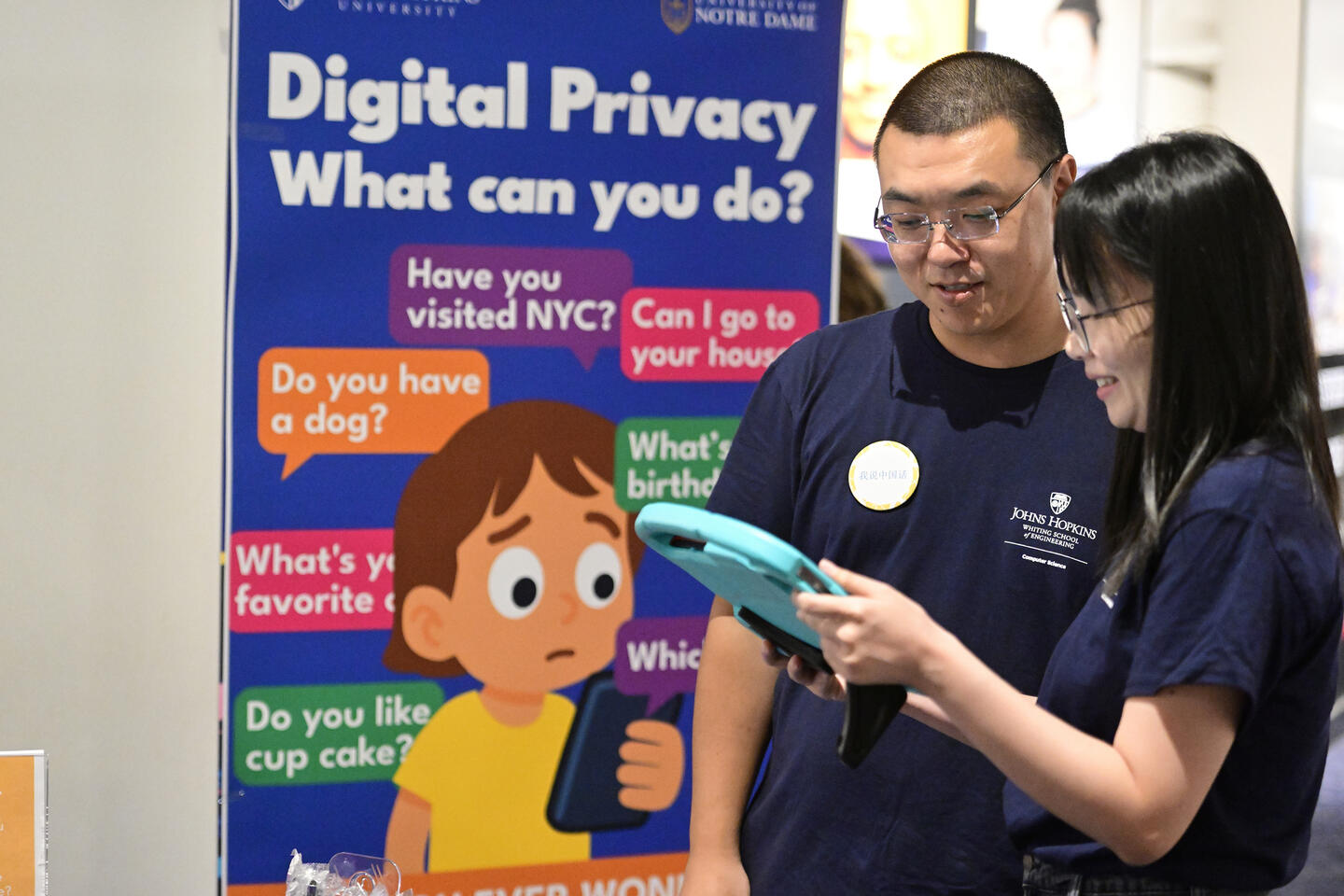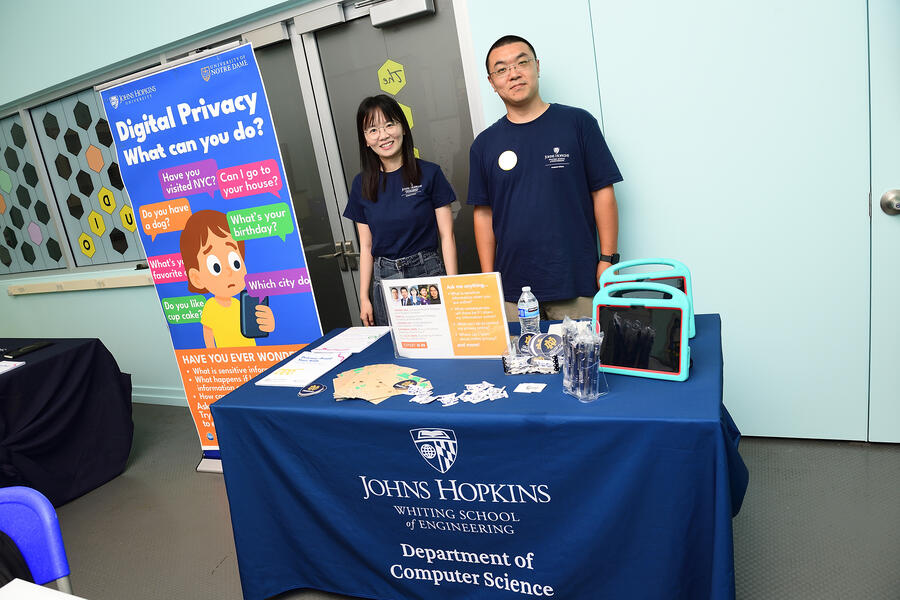Young visitors to a recent educational event at the National Museum of Natural History in Washington, D.C., tested their digital privacy awareness with an interactive tool created by computer scientists from the Johns Hopkins University and the University of Notre Dame.
The two-hour Privacy, Security, and Safety in Digital Space event took place in the museum's Cellphone: Unseen Connections exhibit on July 18 as part of the Smithsonian's Expert Is In program, which offers museum visitors the opportunity to chat with leading scientists.
The interactive "sandbox" designed by the Hopkins-Notre Dame team consists of software installed on iPads that allows users to engage with a series of real-world scenarios in which they decide whether to share their personal information online. Over 150 visitors stopped by to speak with the researchers and try the educational tool.

Image caption: Yaxing Yao, left, and computer science PhD student Lanjing Liu
Image credit: Will Kirk / Johns Hopkins University
"Our sandbox—a kid-friendly version of our previous implementation—is an interactive piece of software that allows children to explore the outcomes of different privacy decisions without using their actual information," explains team co-lead Yaxing Yao, an assistant professor of computer science at the Whiting School of Engineering and the director of the Hopkins Privacy and Security Lab. "It's a risk-free way for kids to understand what privacy is and understand that privacy is not a binary concept, but a spectrum on which you make decisions based on many different factors."
Although the sandbox is aimed at elementary and middle school children, "it can be beneficial for children of all ages—and their parents," says Yao, whose research focuses on educating children and families about digital privacy. "Sometimes when parents want to talk to their children about privacy, they realize they don't know really know it themselves."
The researchers hope to showcase their sandbox and more digital privacy resources at other local museums after incorporating feedback from this event.
"The idea of privacy can be kind of abstract, so we wanted to get a better sense of how people think about the things we do as privacy researchers," Yao says.
This work was supported by the National Science Foundation.
Posted in Science+Technology
Tagged cybersecurity








